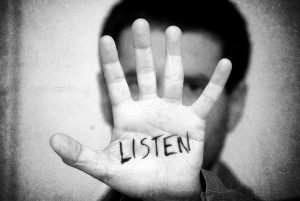
Buying a product is not always simply just picking something out and bringing it straight to the check-out counter. When you buy, often you want to know about the product you are investing in. You want to know how efficient it is and if it will get the job done that you need it for. While it is good to inquire the salesman about the product and listen to his knowledge on the subject, is there such thing as too much knowledge?
Imagine yourself about to buy a product, but feeling a little skeptical about purchasing it for sure. In order to learn more about it, you start asking the salesperson some questions, and before you know it, they are spitting information about the product like rapid fire for the next hour. Wow. How exhilarating it is to know what year the first printer was invented and what town it was created in when all you were looking for was a printer that is able to print smoothly and colorfully. You as the customer were not looking for an hour long conversation where the salesman would not even let you get a word in, and now, you are thinking about taking your business somewhere else!
Let’s switch to the perspective of the salesman. This is a danger zone for the salespeople of the world. Don’t get me wrong, knowledge on a product is great to have! Know as much as you want to about a particular product, but just because you have all of the information, does not mean you need to recite it to the customer when that is not what they care about. One of the most valuable things you can do going into sales, is to simply listen. I have heard from multiple extremely successful salesmen and women, that the key to great selling, is talk less and listen more. Listen for the pain that the customer is reporting. What features of a product are they most interested in? The selling process is not all about the product believe it or not, the goal of the game is to relieve the pain of the customers to your best ability. How can you figure out how to do that if you don’t even know what their pain is??
While being conversational and having abundant knowledge on a product are typical salesman characteristics and not necessarily a bad thing, remember, a good rule of thumb is listen 70% of the time and talk 30%. If you generally follow this rule, you should be in business! Mouth shut, ears open, can’t lose.
I loved the point you made about sales being 70% listening and 30% talking. So often in sales environments it can be easy to feel the pressure to talk a great deal in order to gain the interest of a customer. However, if you allow the customer to speak generally they will give you the “clues” about how they want to be sold. Great post Mackenzie!